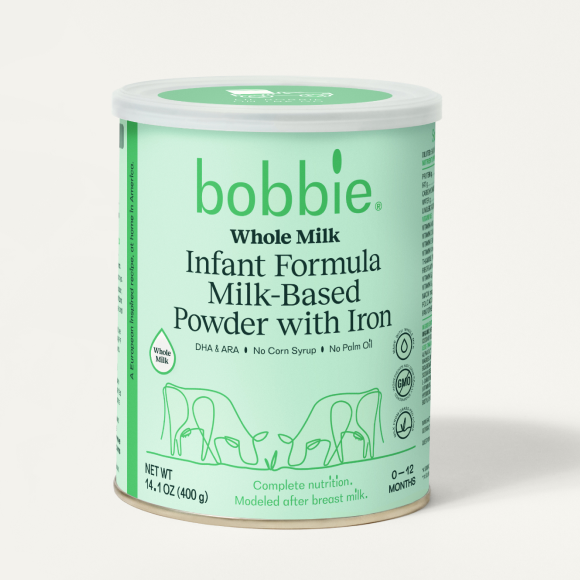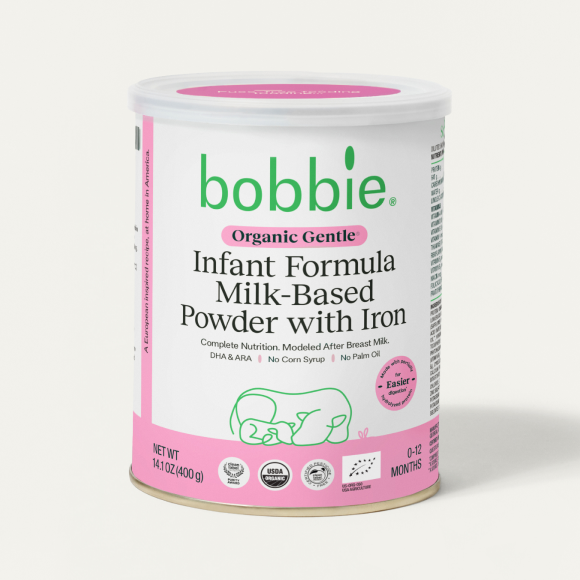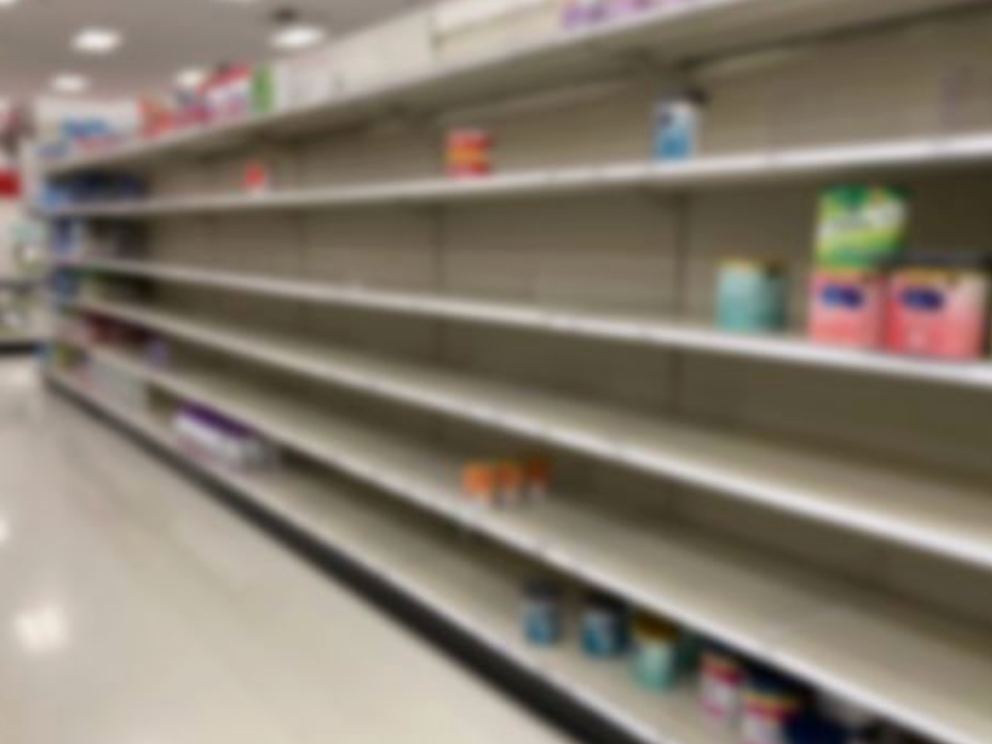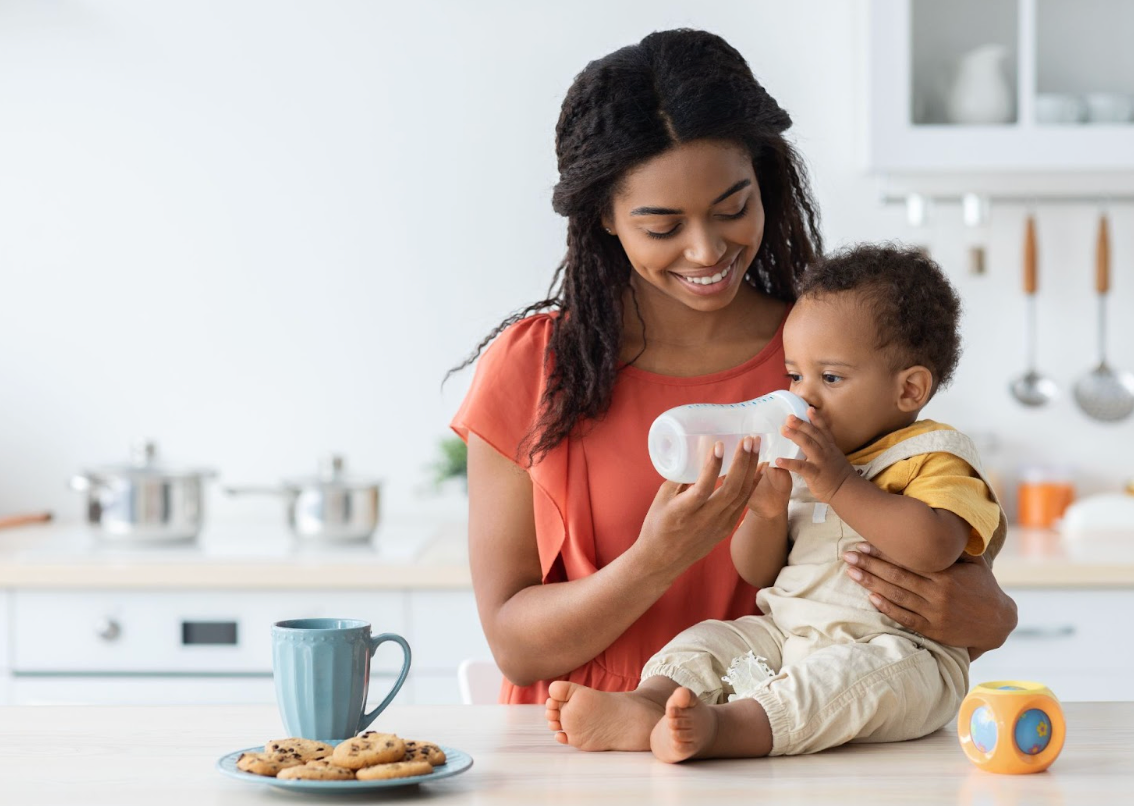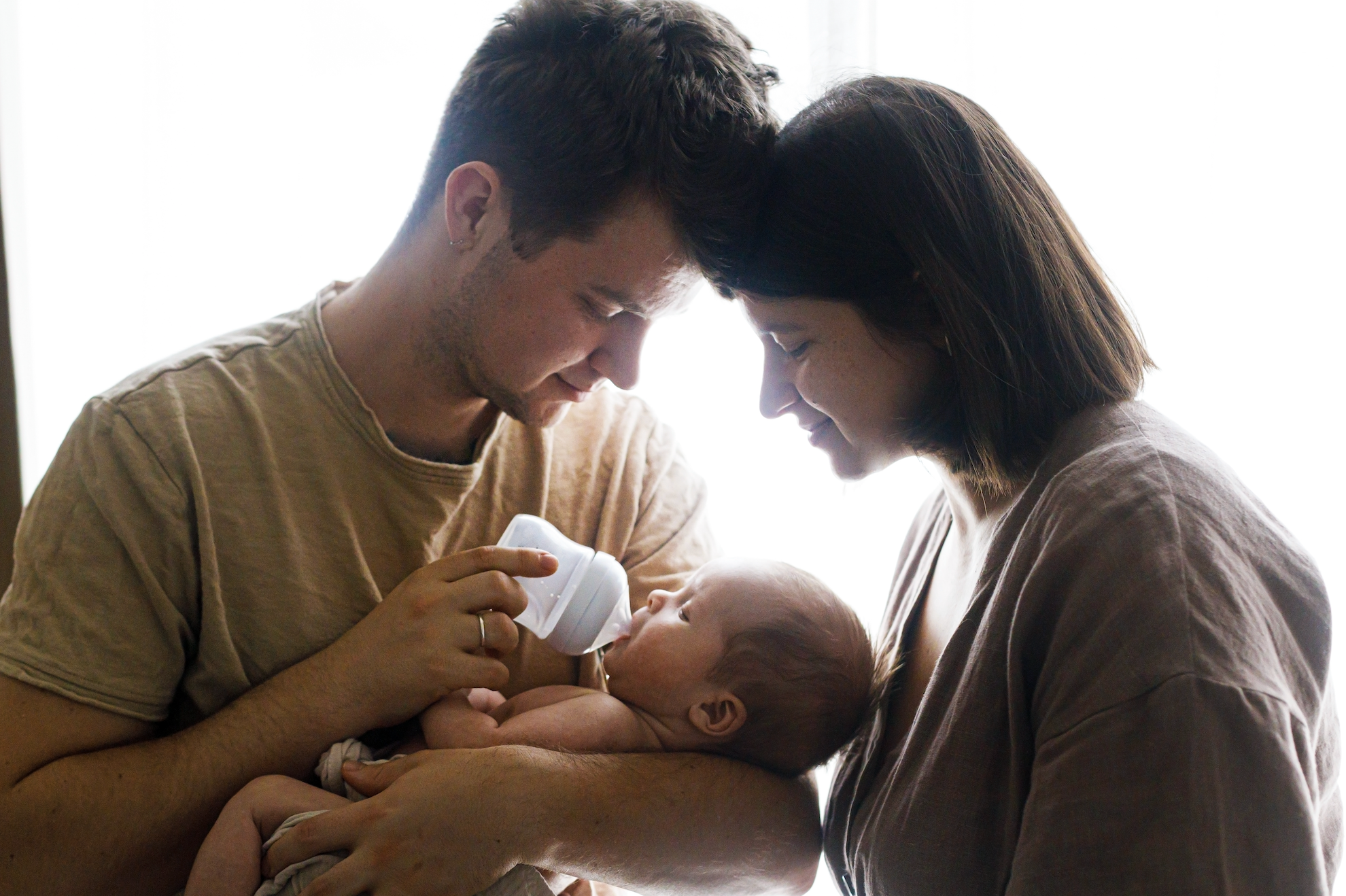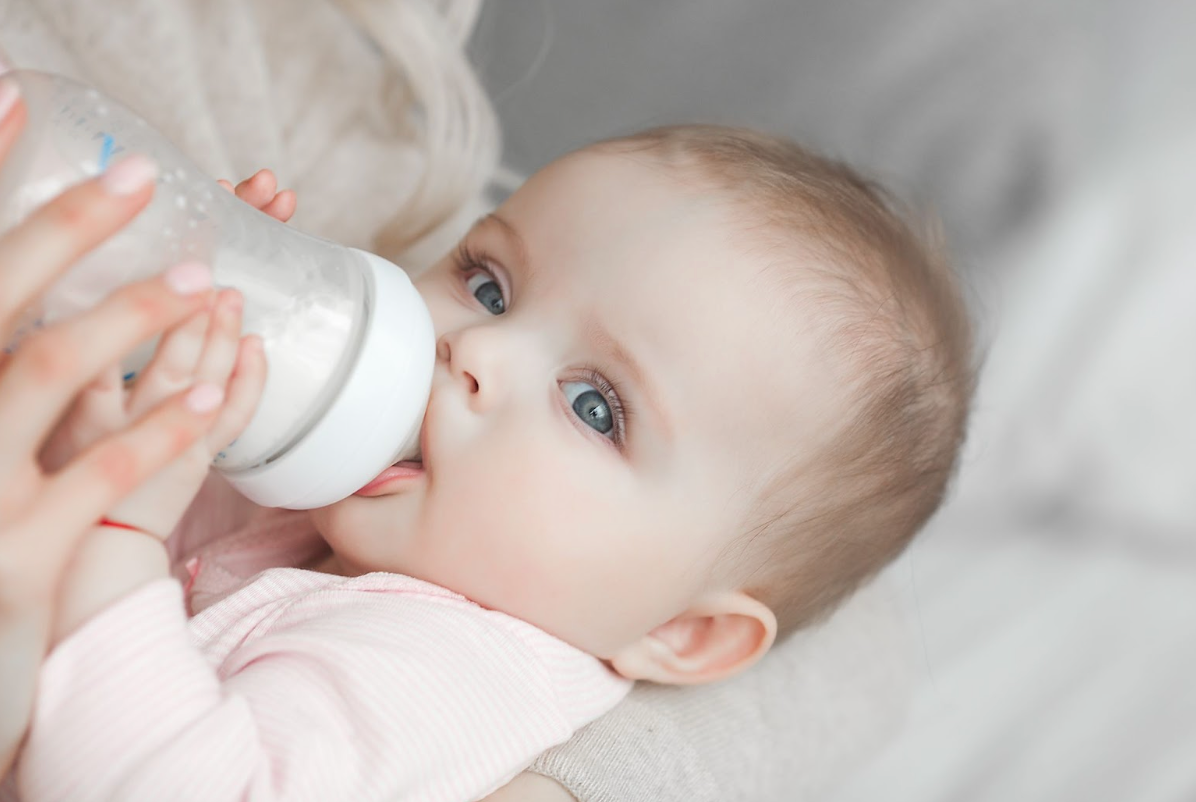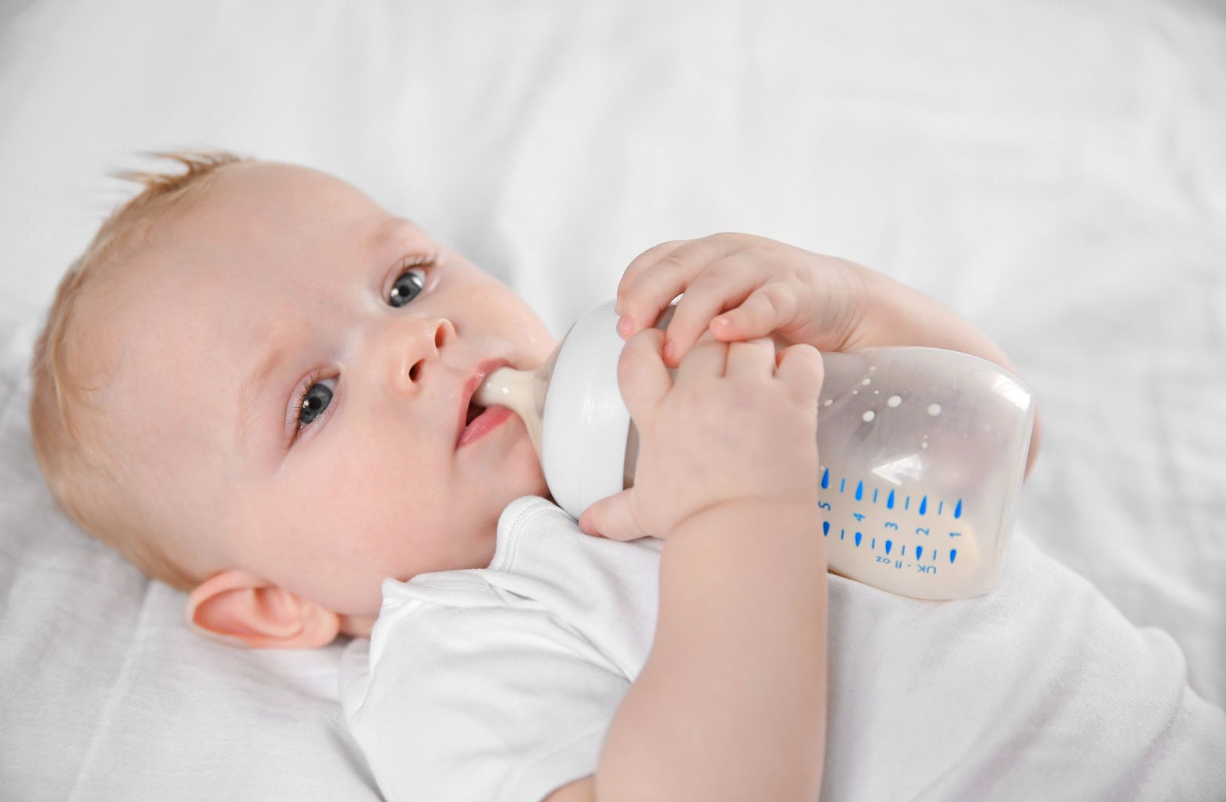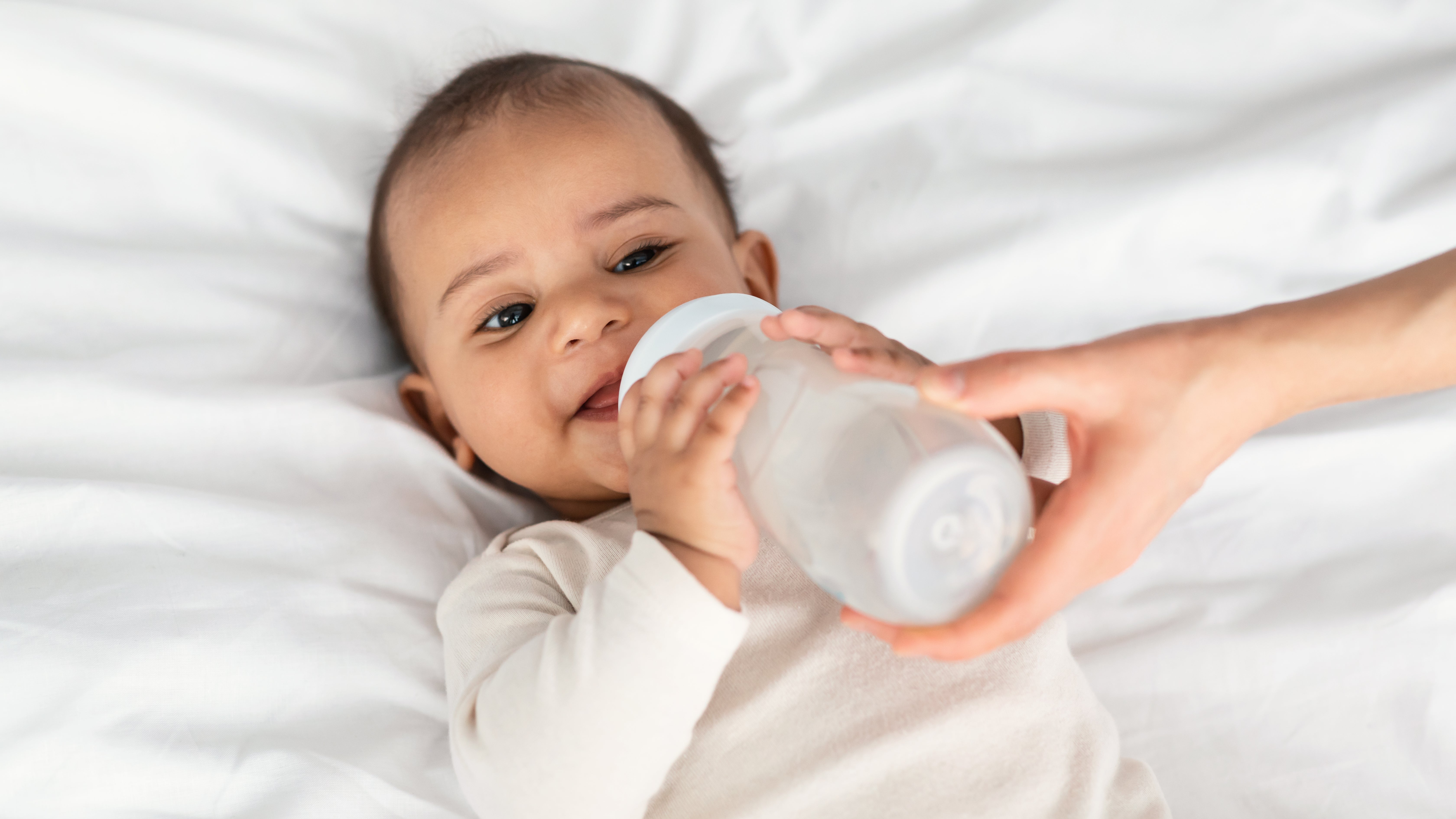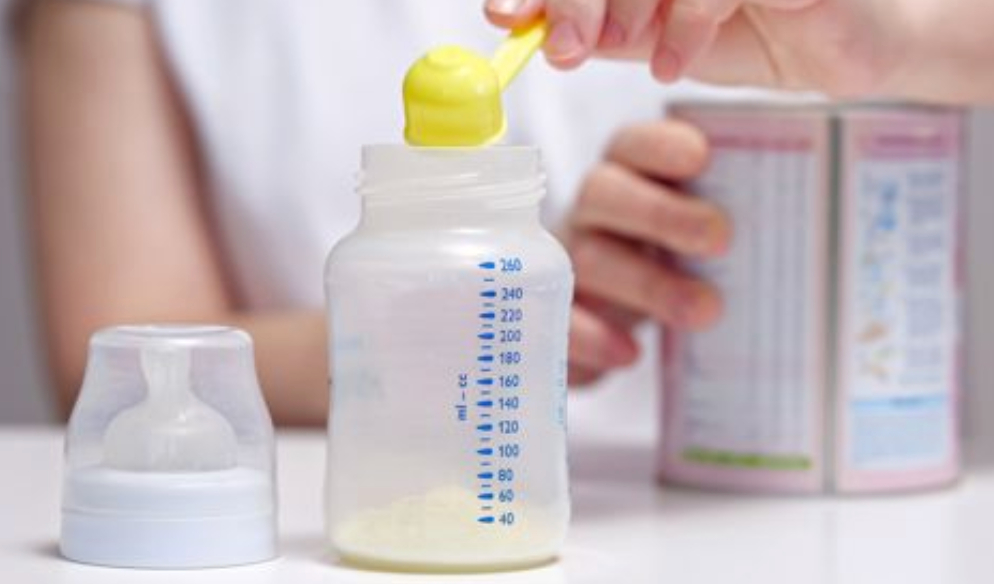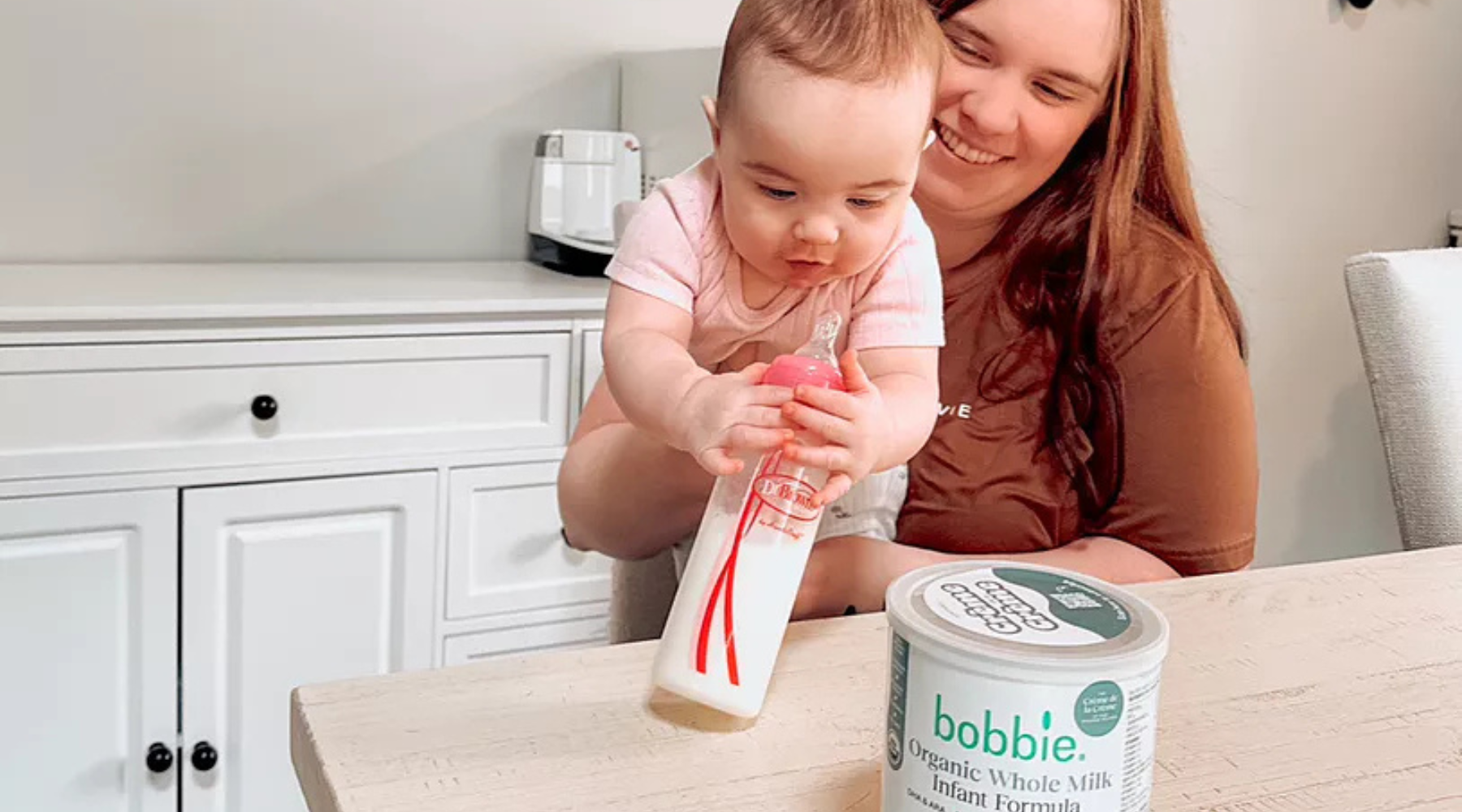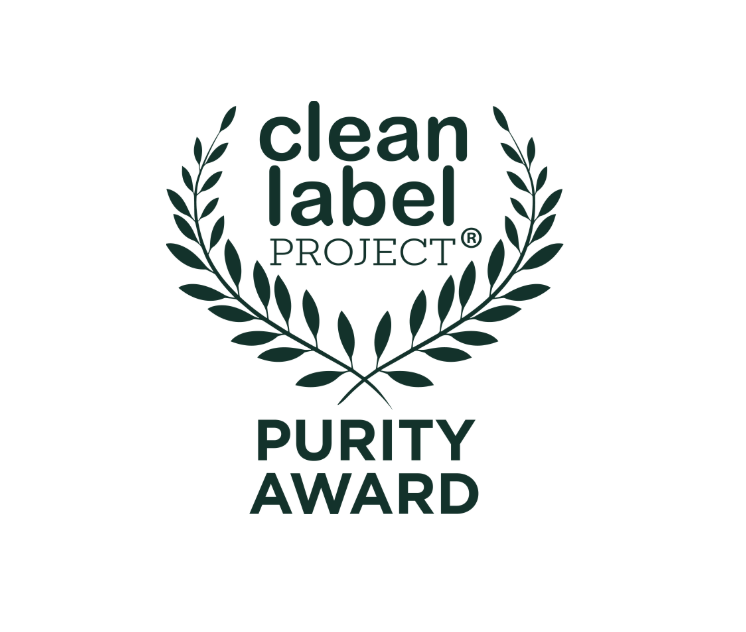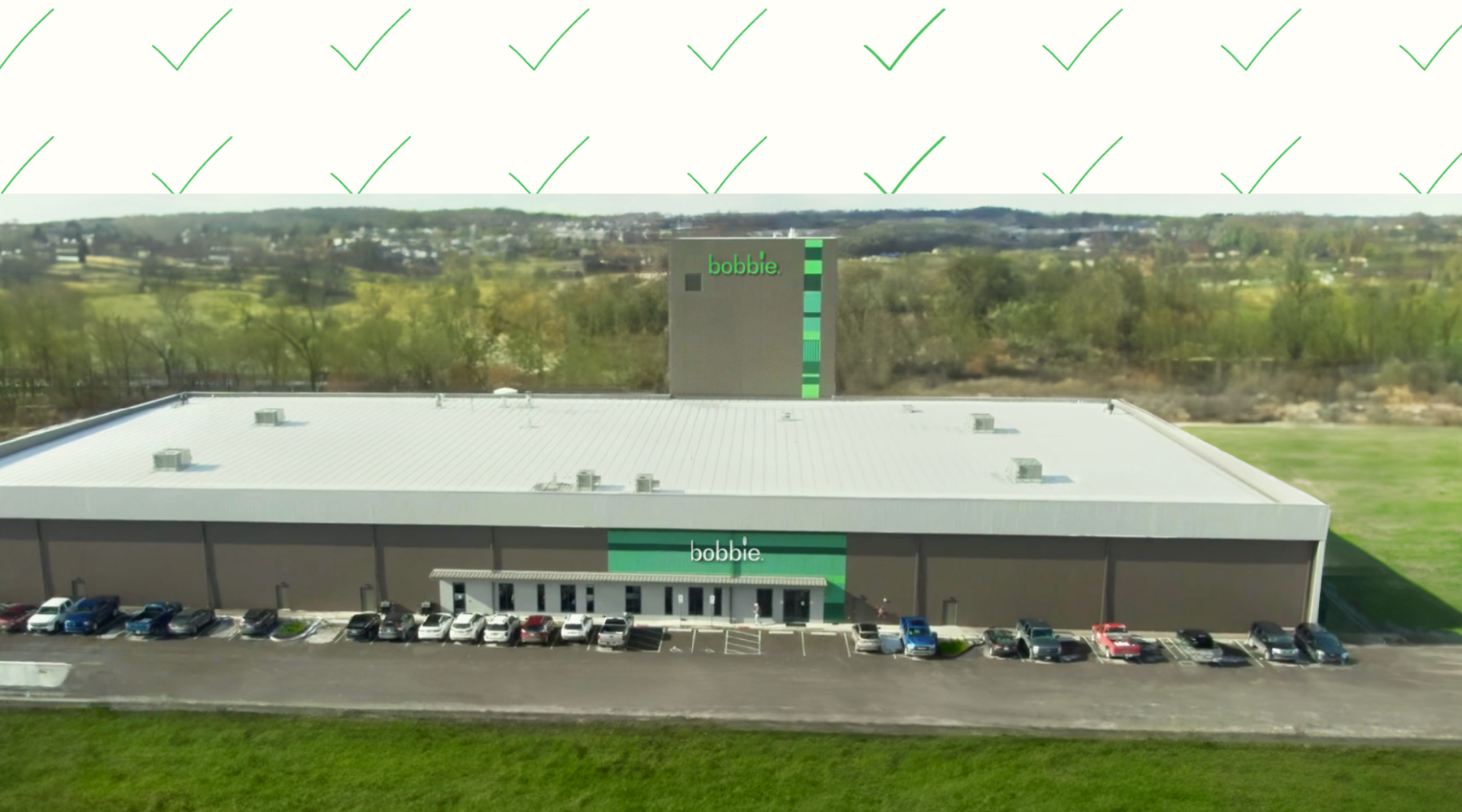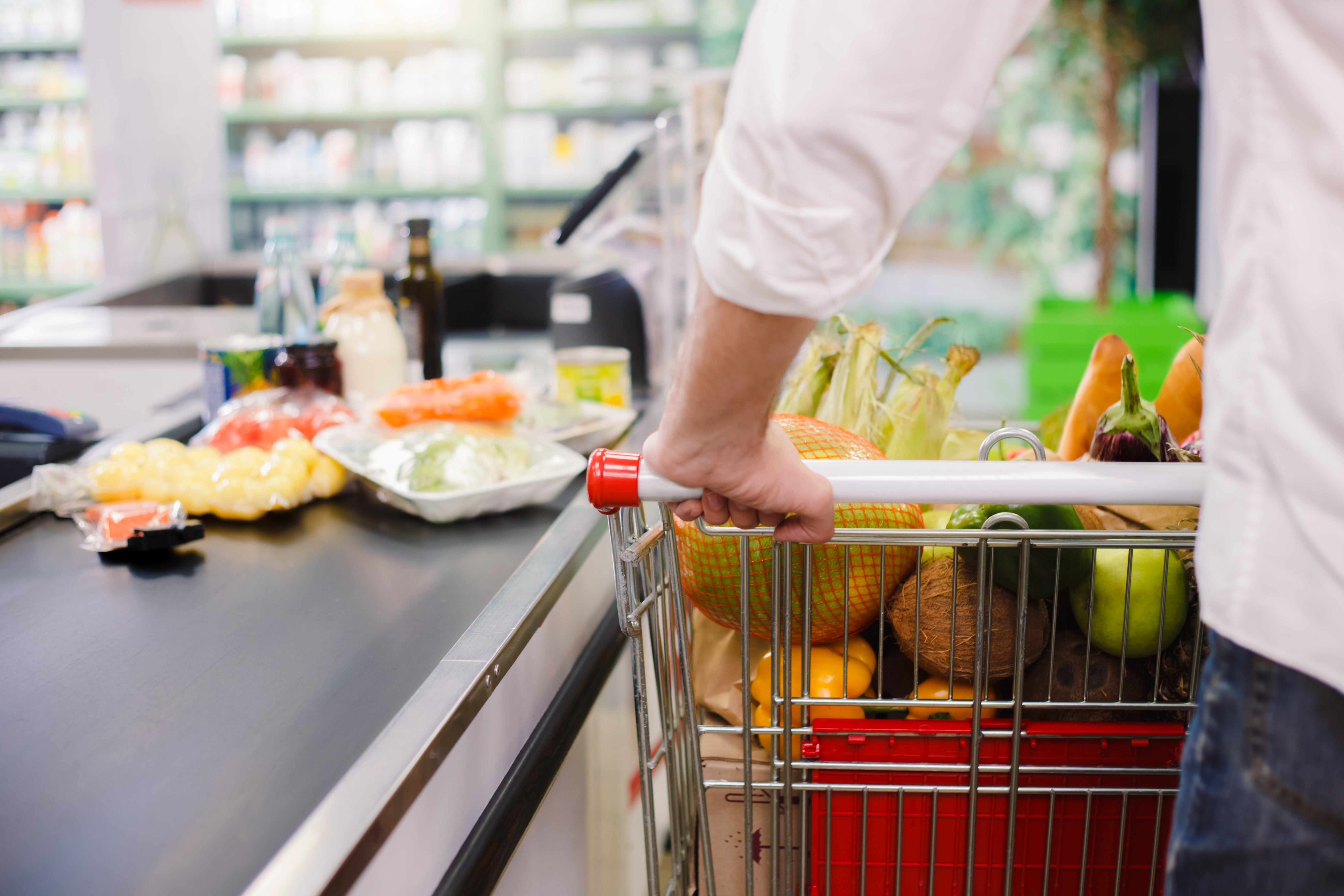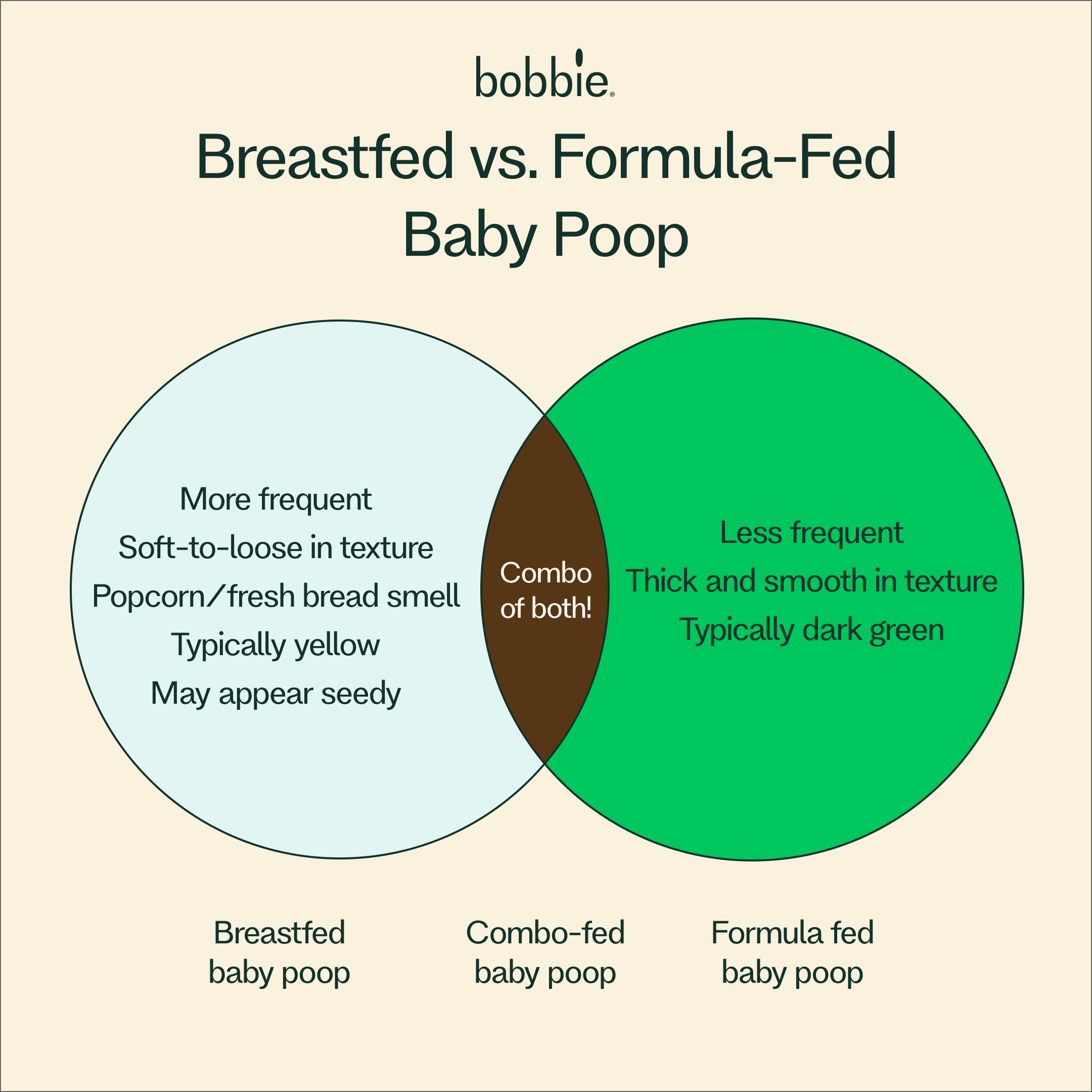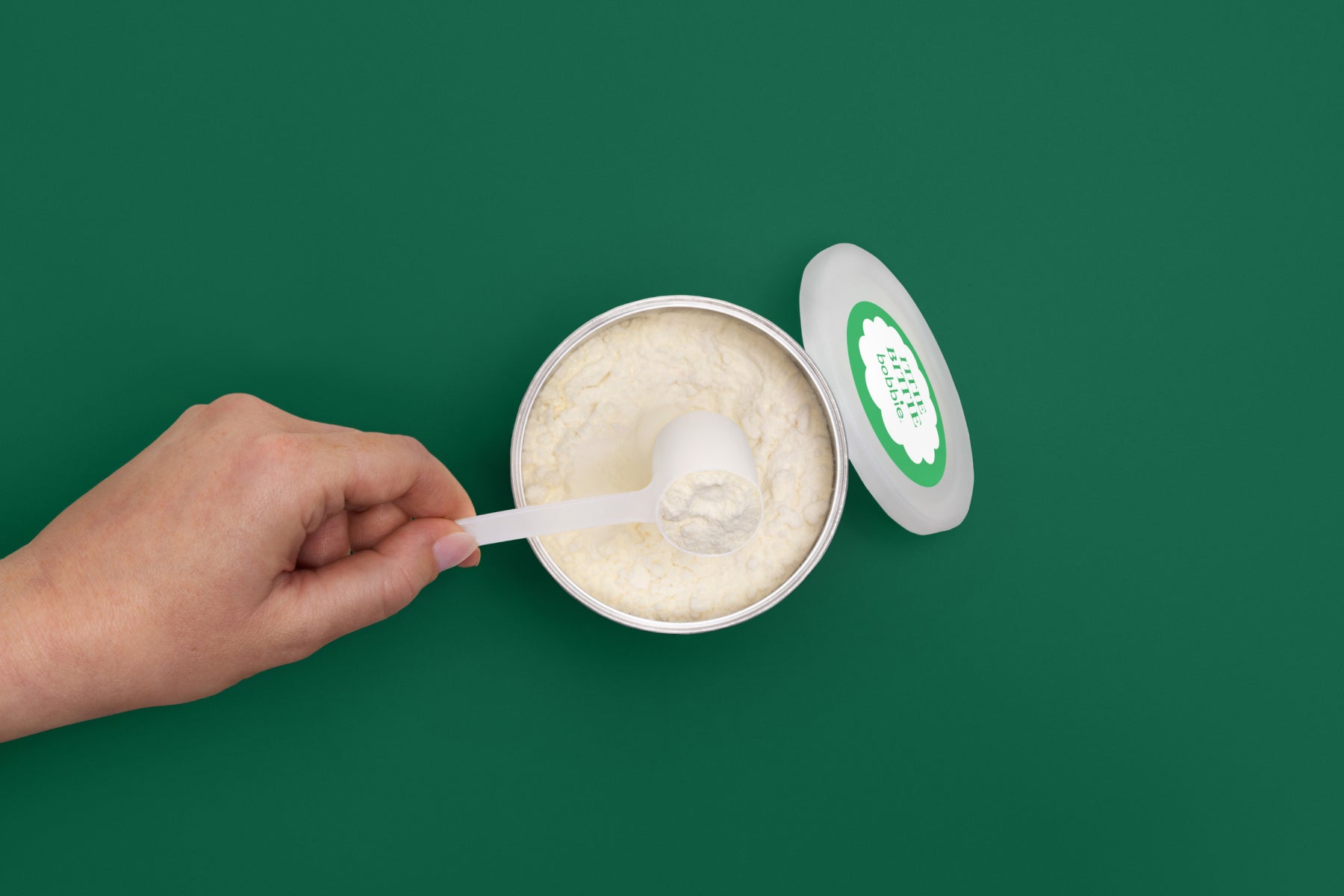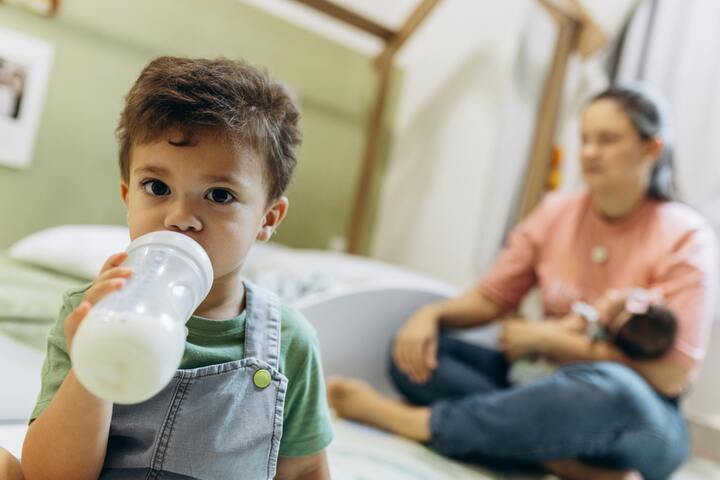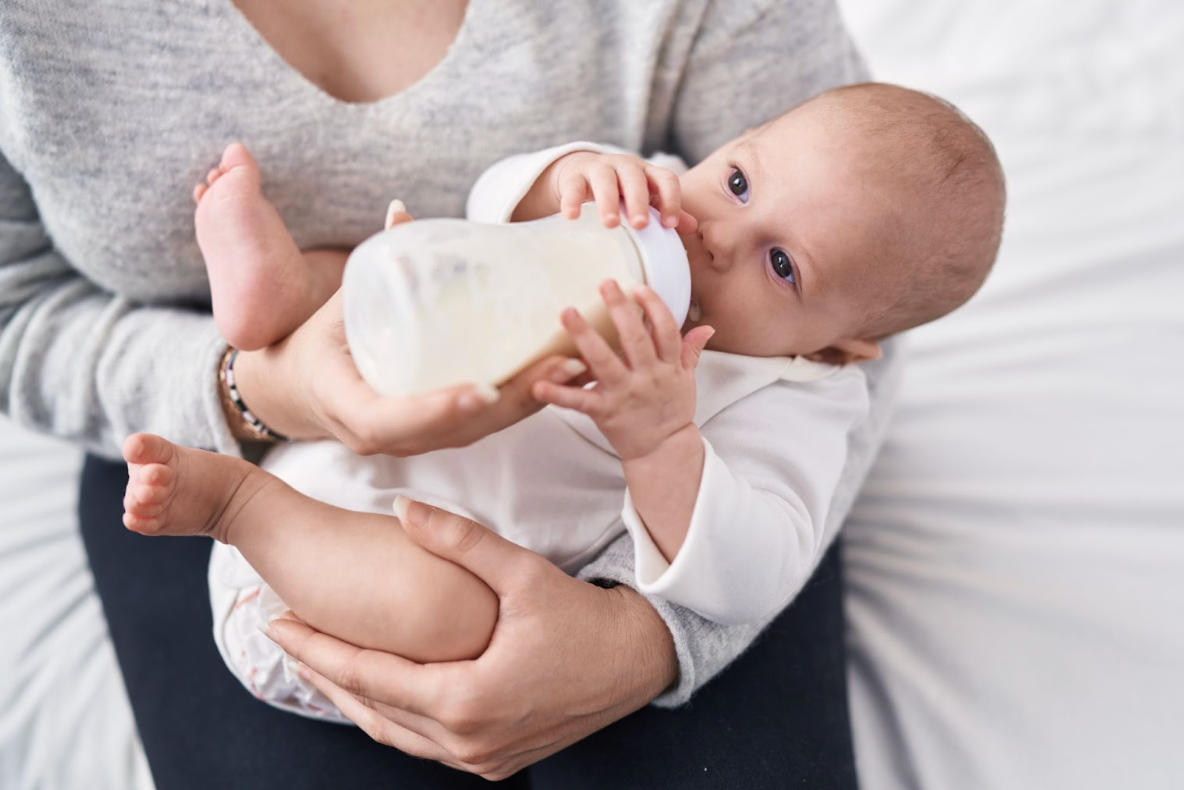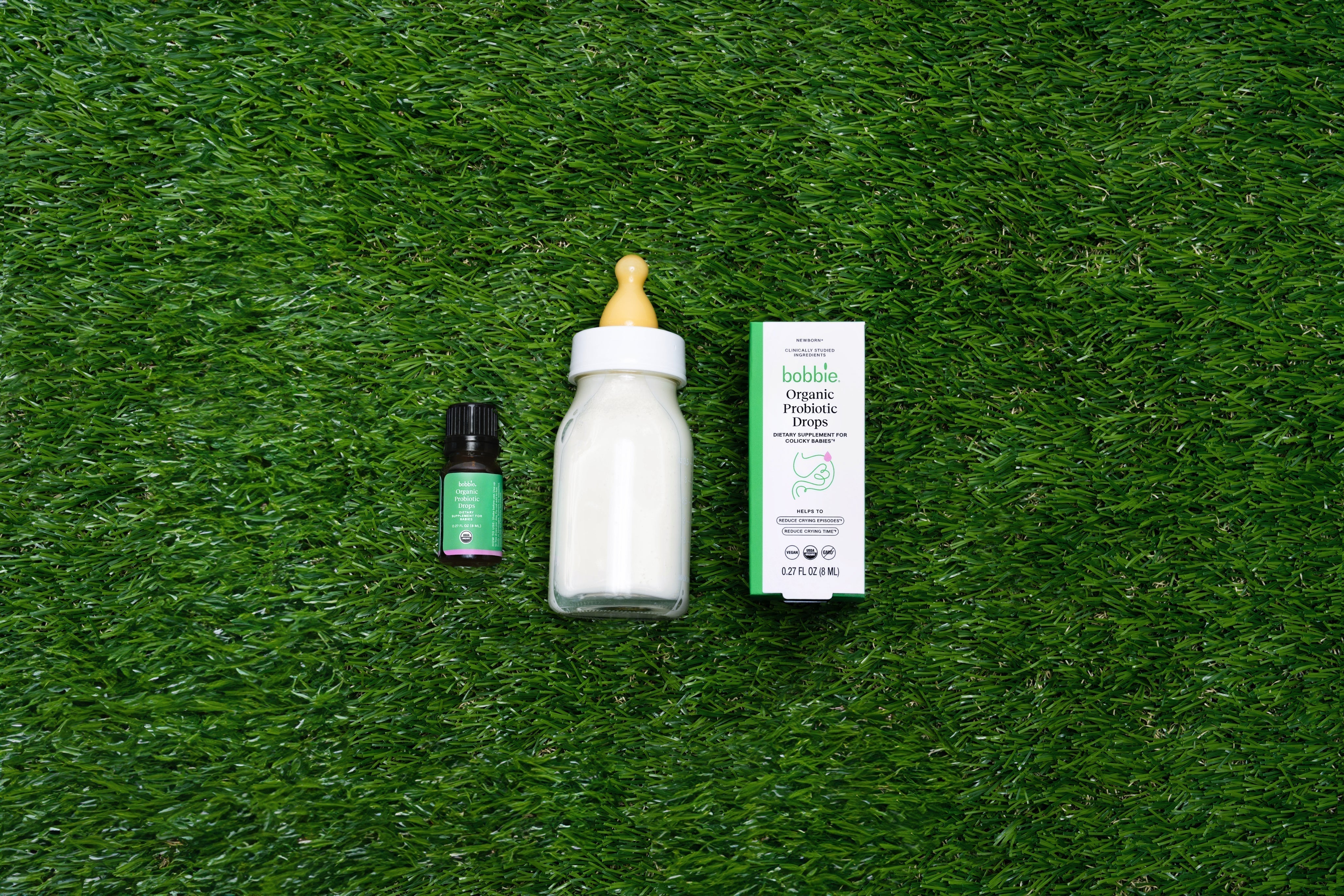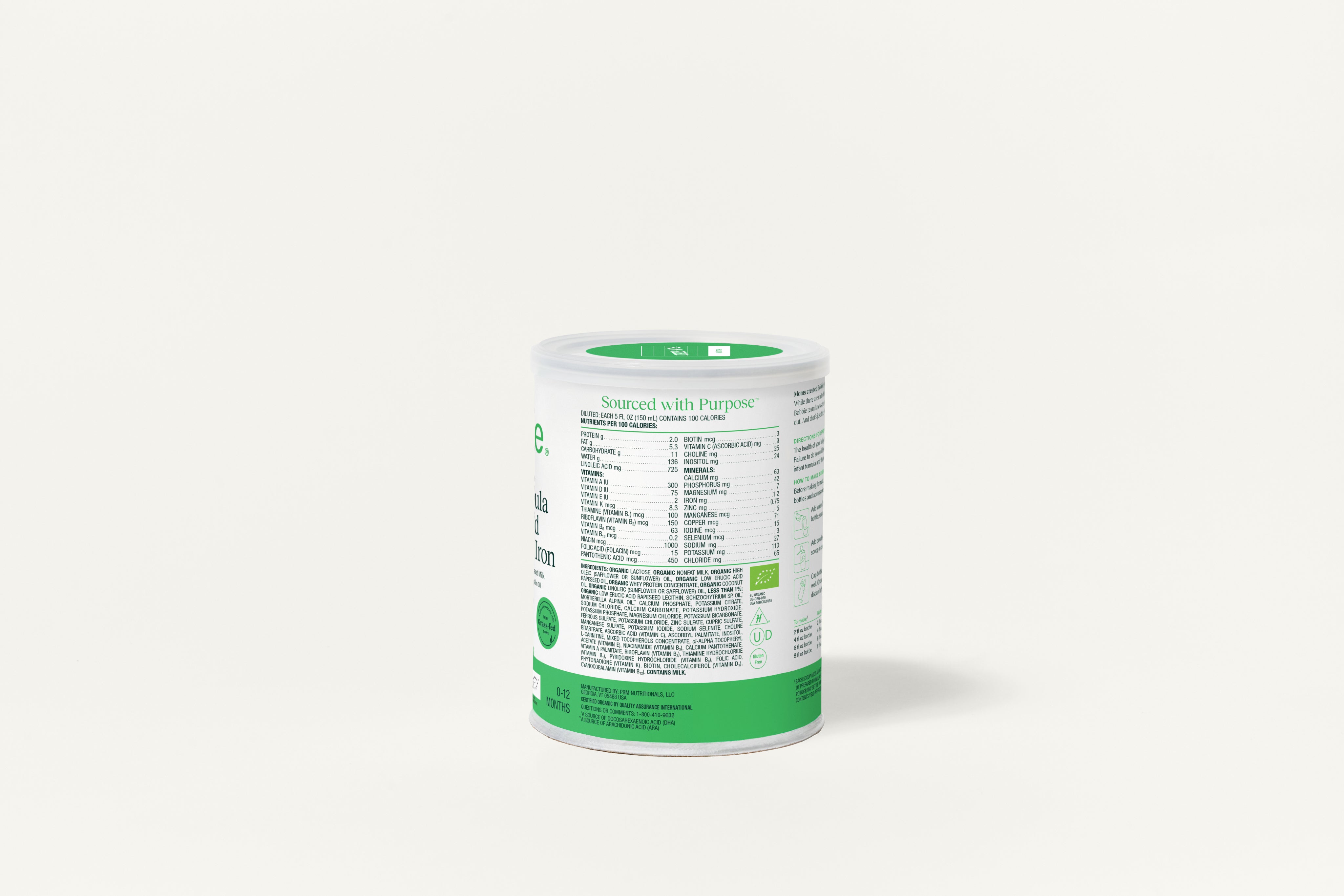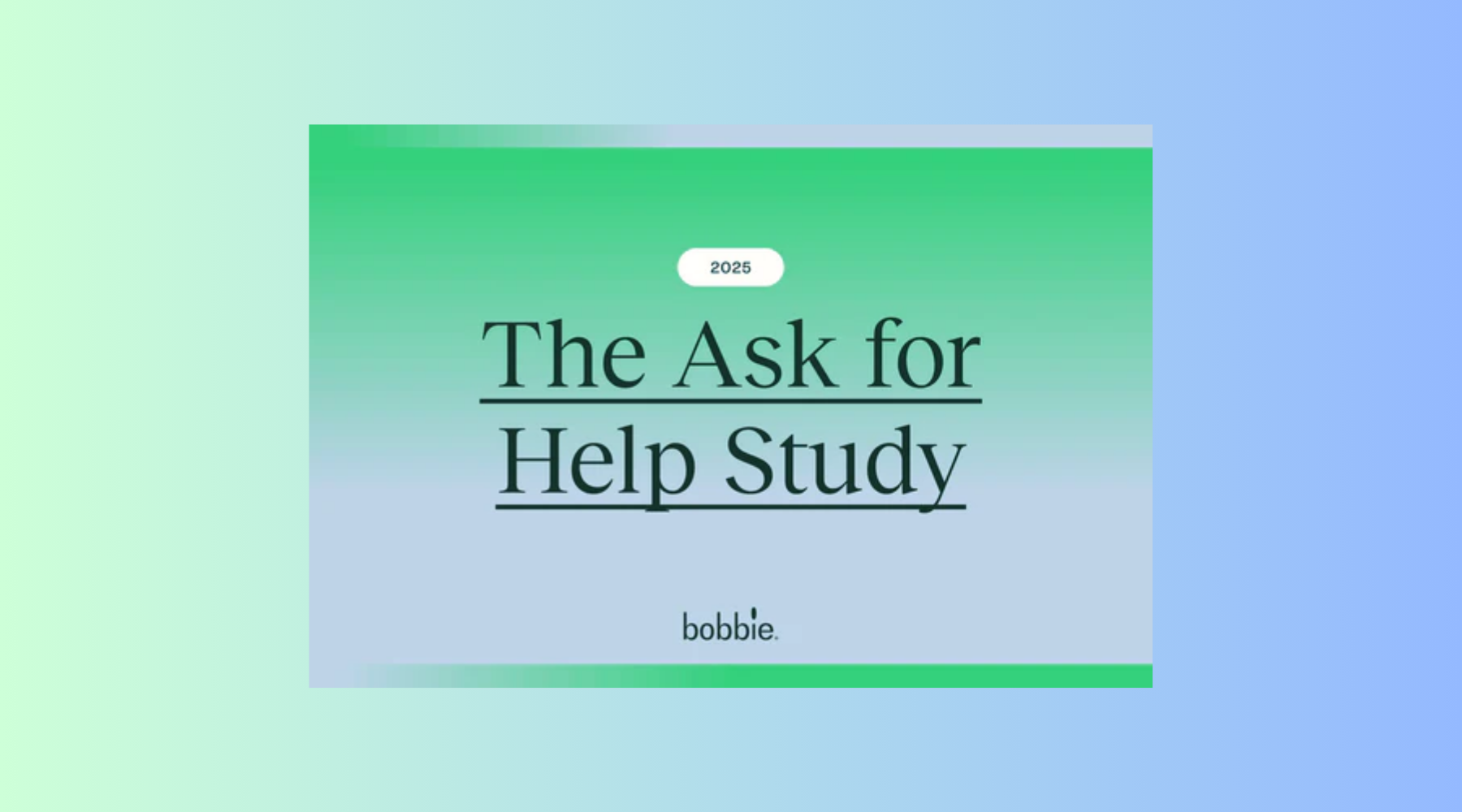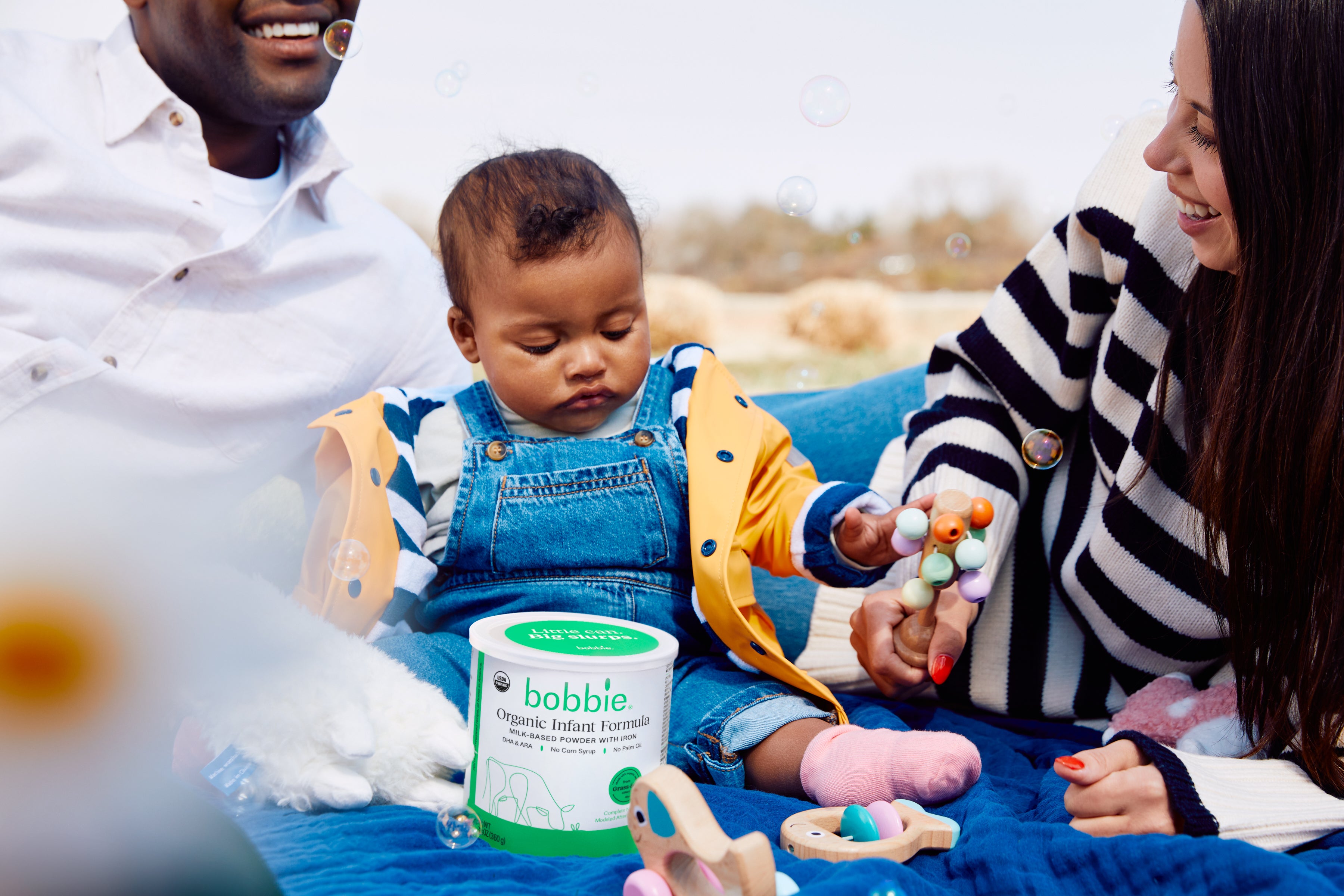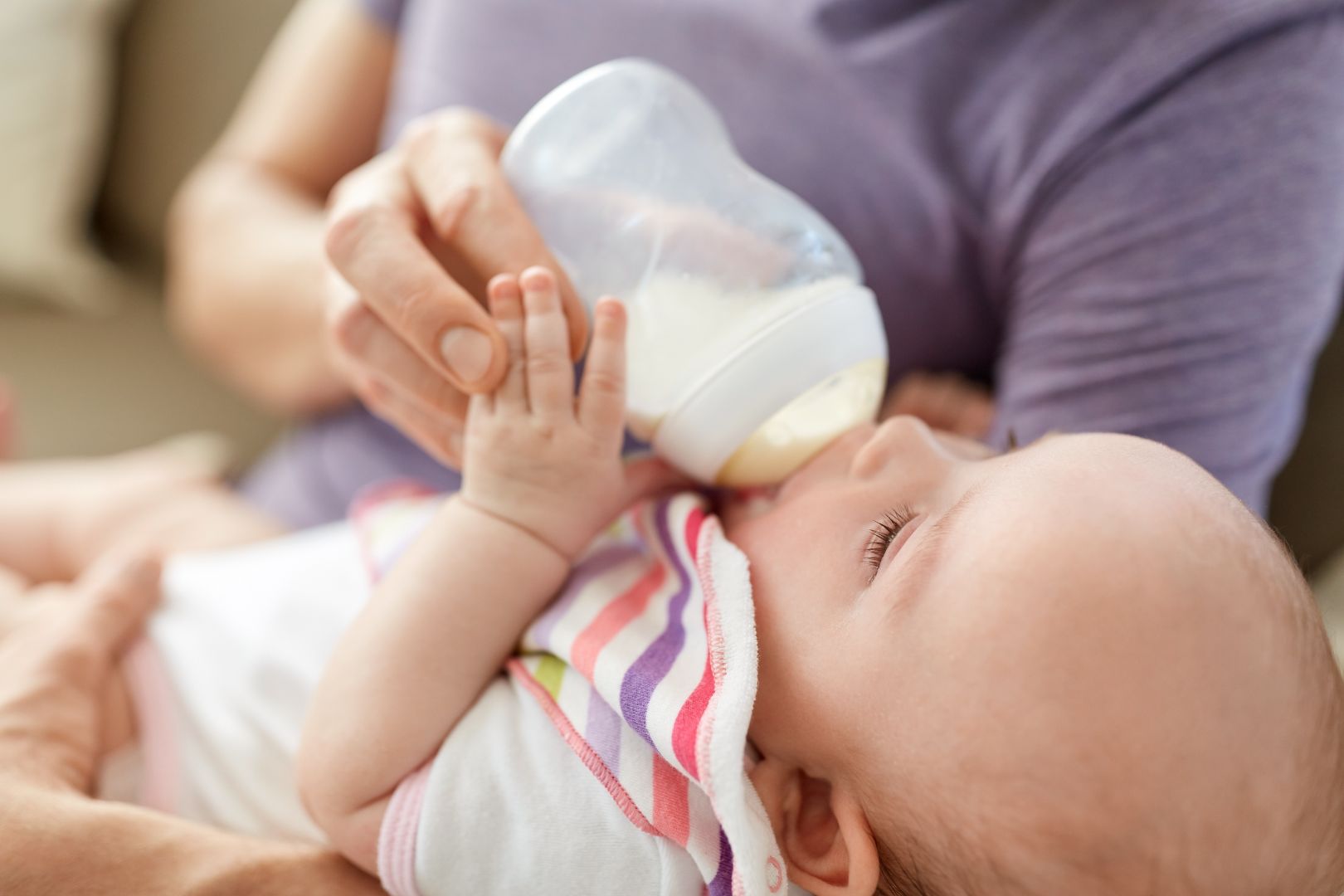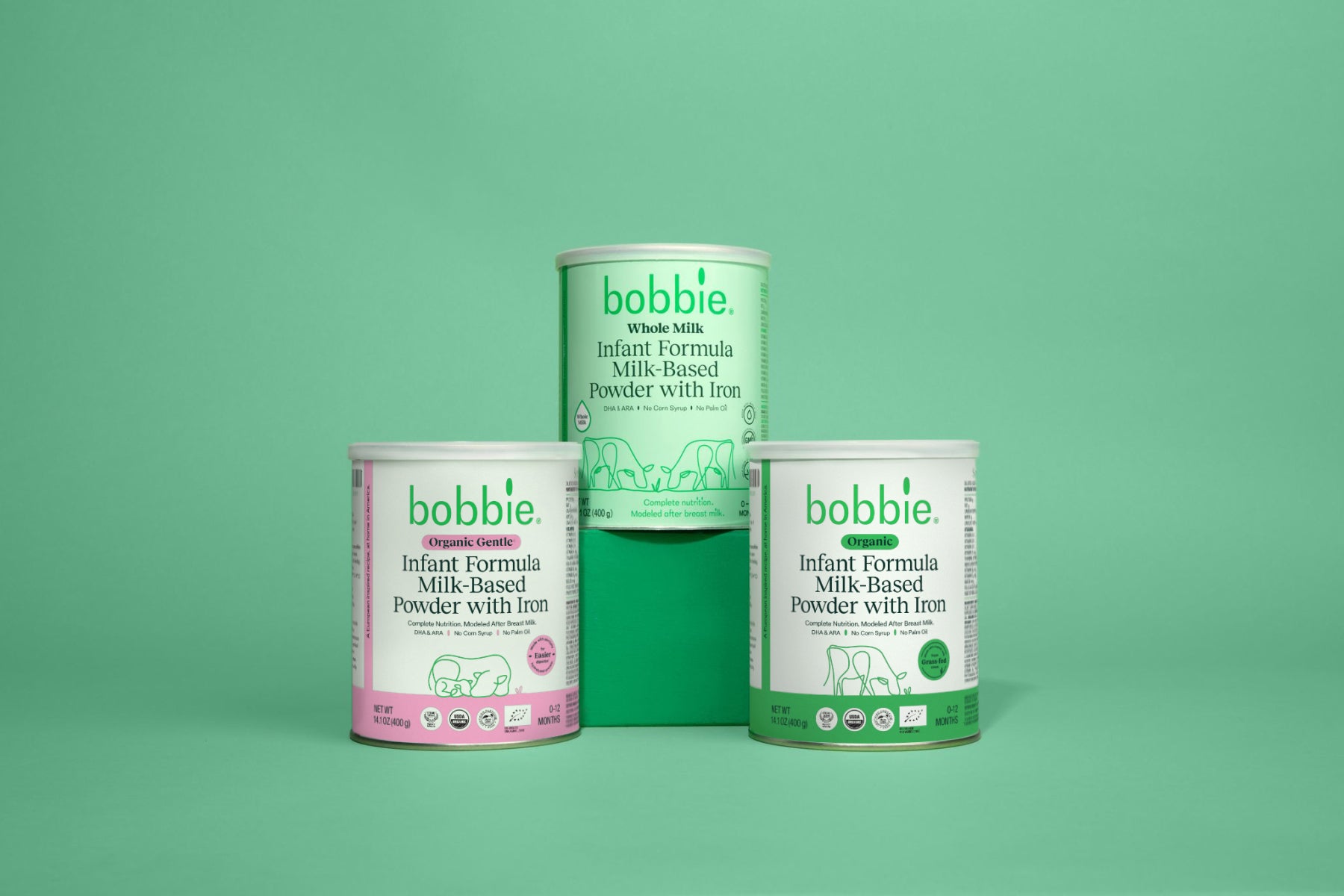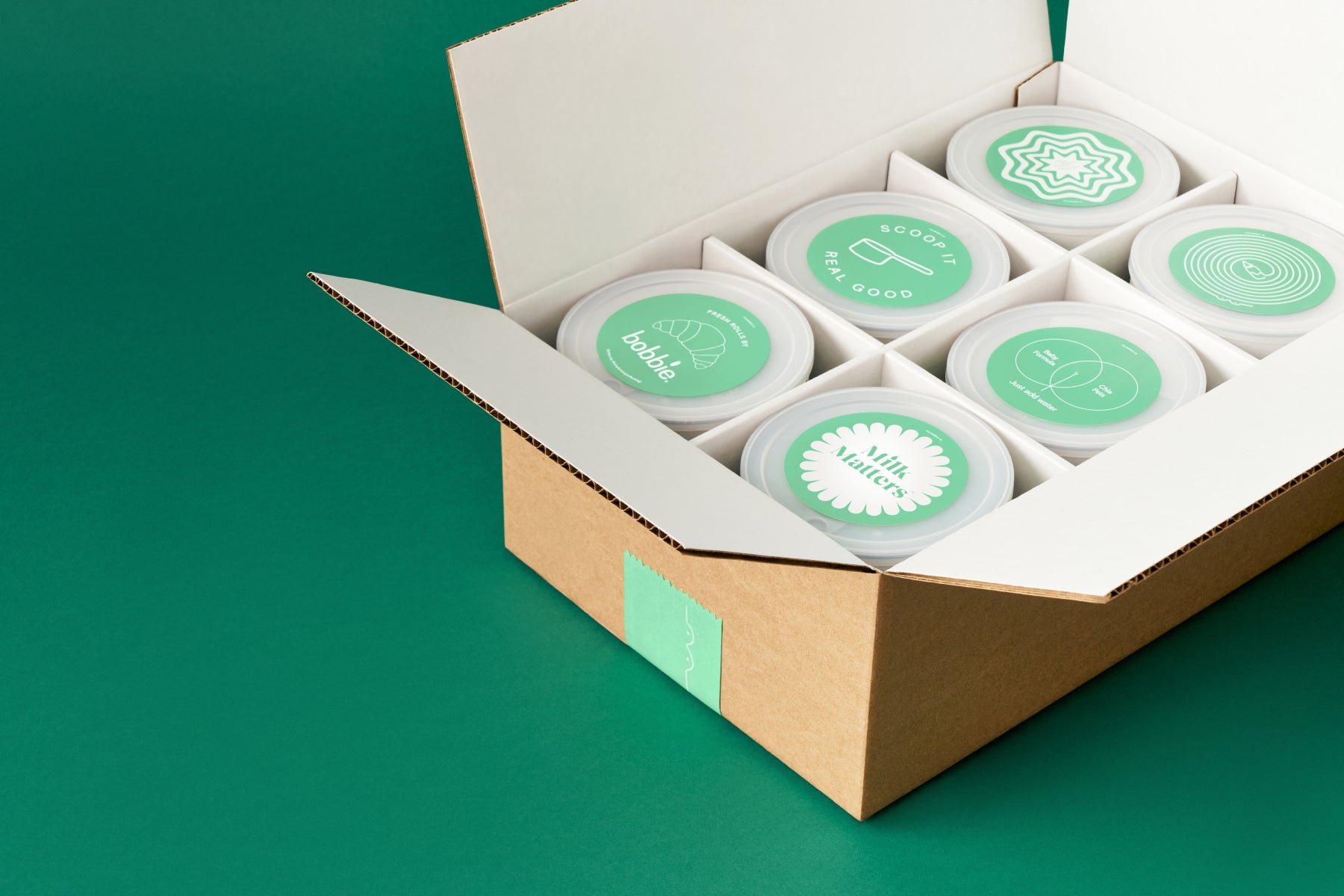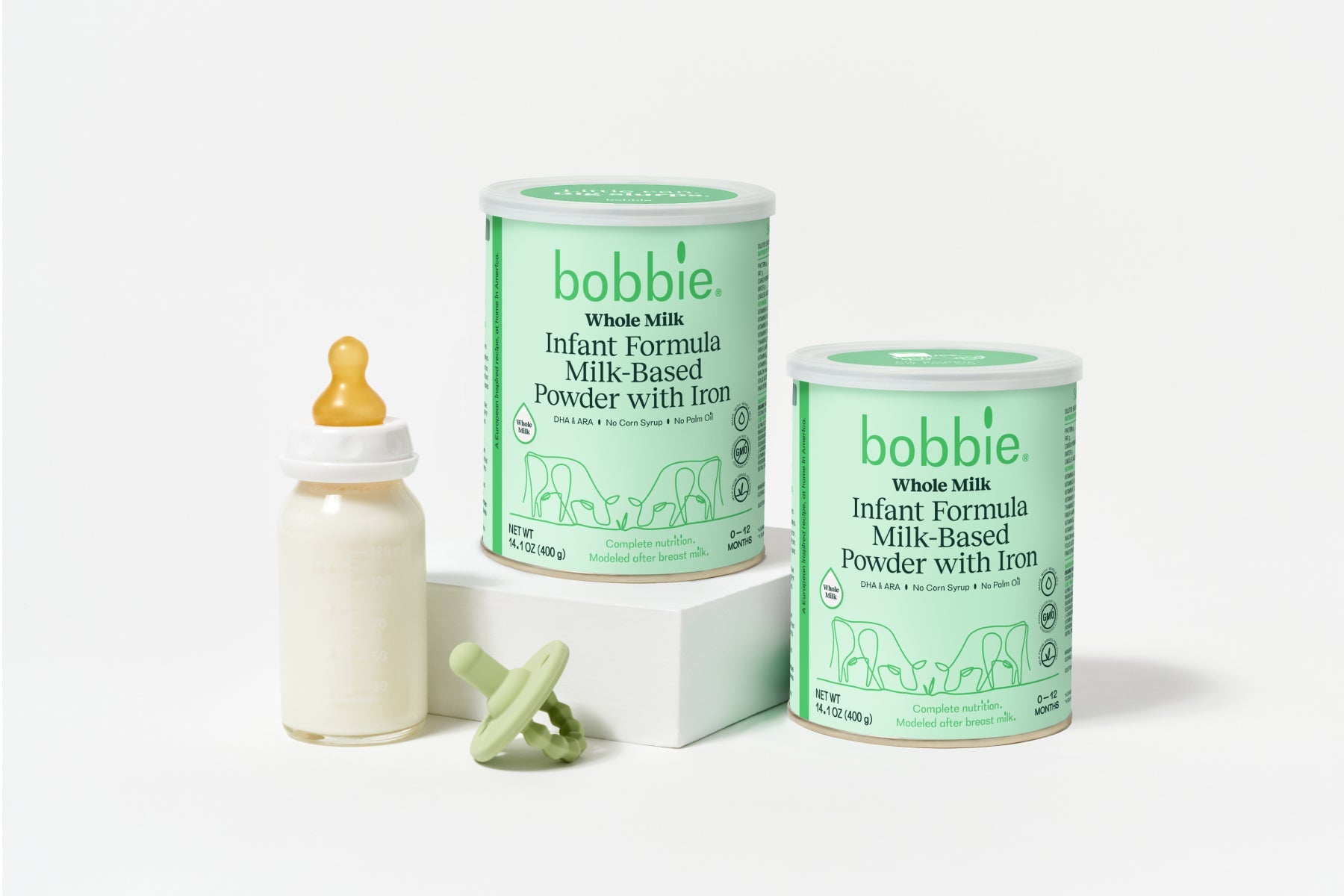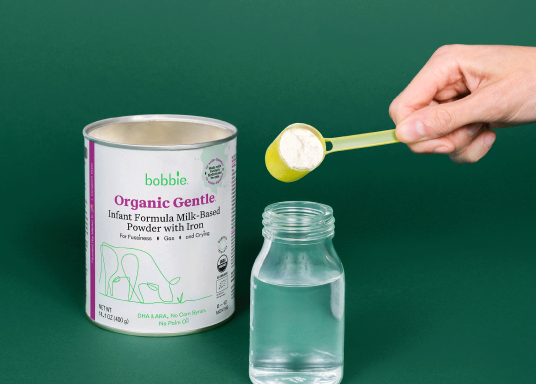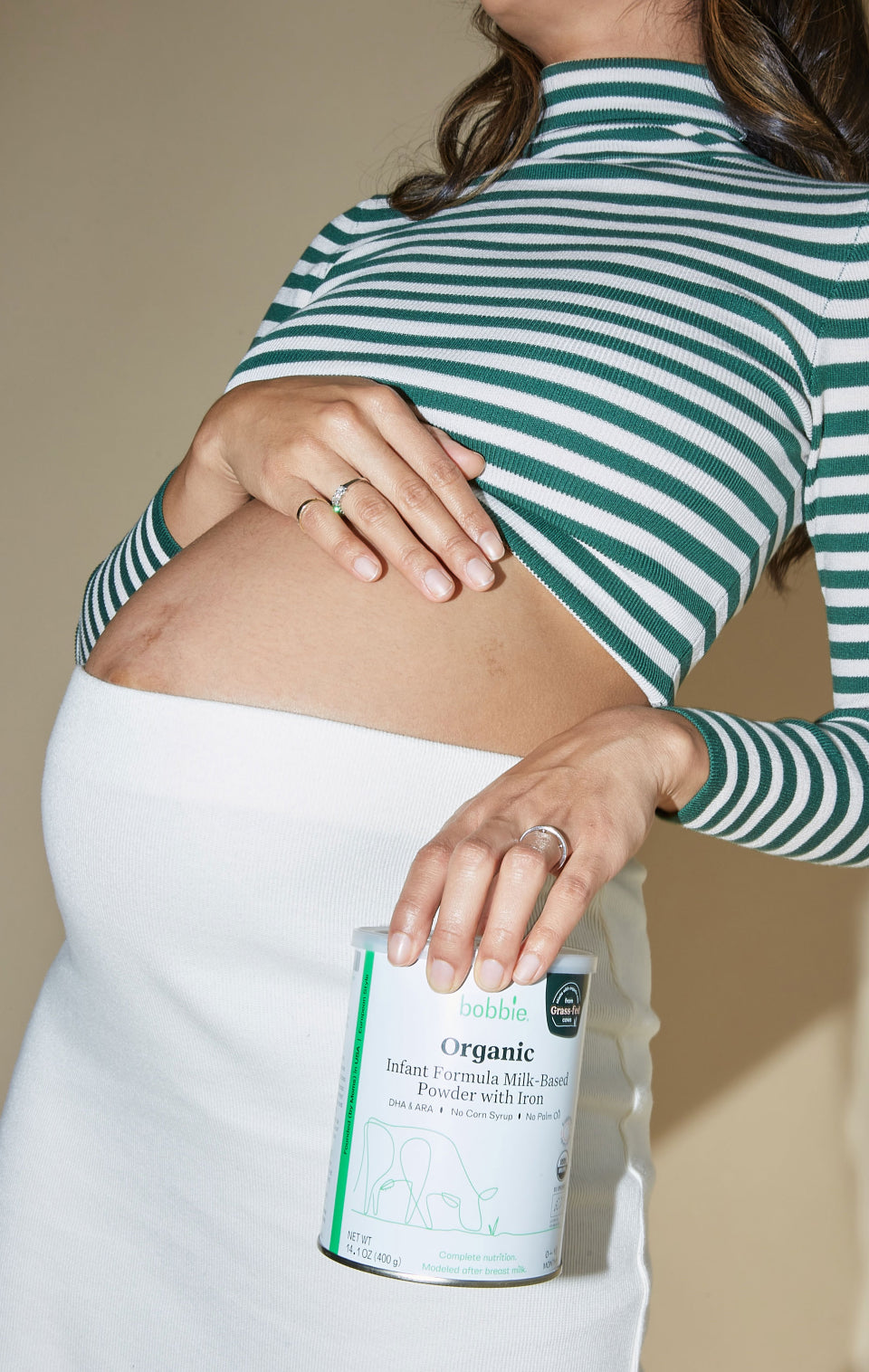Published June 30, 2025
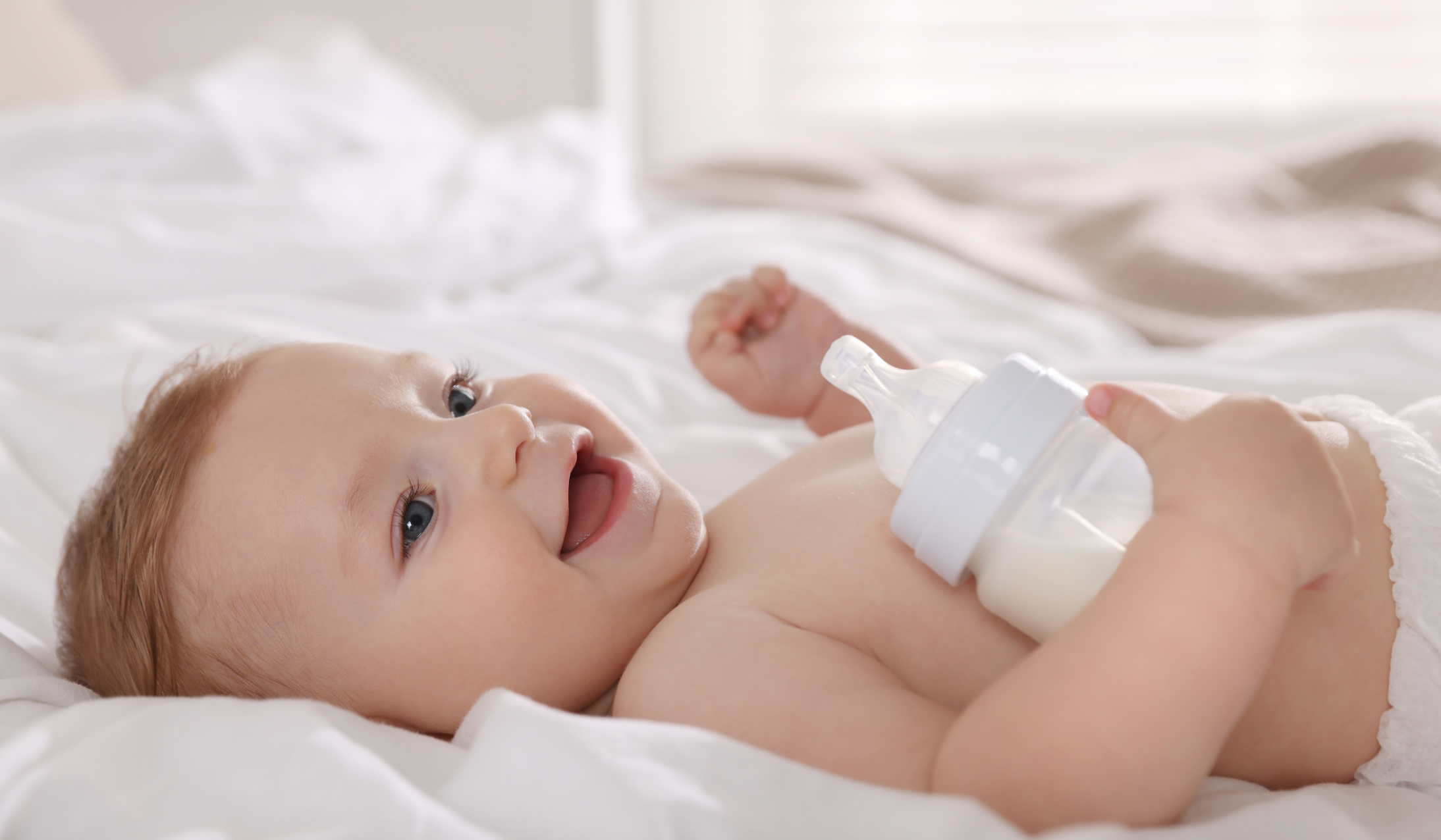
How To Prepare Baby Formula: A Step-by-Step Guide for New Parents
Welcoming a new baby into your life comes with countless decisions and plenty of new routines to learn when it comes to feeding. If you’ve chosen formula feeding, you’re in good company. With so many infant formula options, ranging from organic to gentle recipes, there’s a formula out there to fit your baby’s needs. But regardless of the infant formula you choose, safely preparing each bottle is key to keeping your little one healthy while they grow.
Explore our step-by-step guide to prepare baby formula with confidence, including helpful tips to make feeding time a little easier!
Why Formula Preparation Is Important for Your Baby’s Health
Preparing baby formula the right way is more than just a routine — it’s a key part of protecting your baby’s health. When bottles aren’t mixed or stored properly, there’s a risk of nutritional imbalances or bacterial contamination that can be dangerous given your baby’s developing immune system.
From washing your hands and using sterilized bottles to measuring carefully and storing formula safely, every small step matters. These simple habits help ensure your baby gets the safe, balanced nutrition they need for development. And just as important as how you prepare the formula is choosing the right one.
Not sure which formula is best? Use our newborn feeding quiz to find a formula that fits your baby’s needs so you can feel confident with every feed.
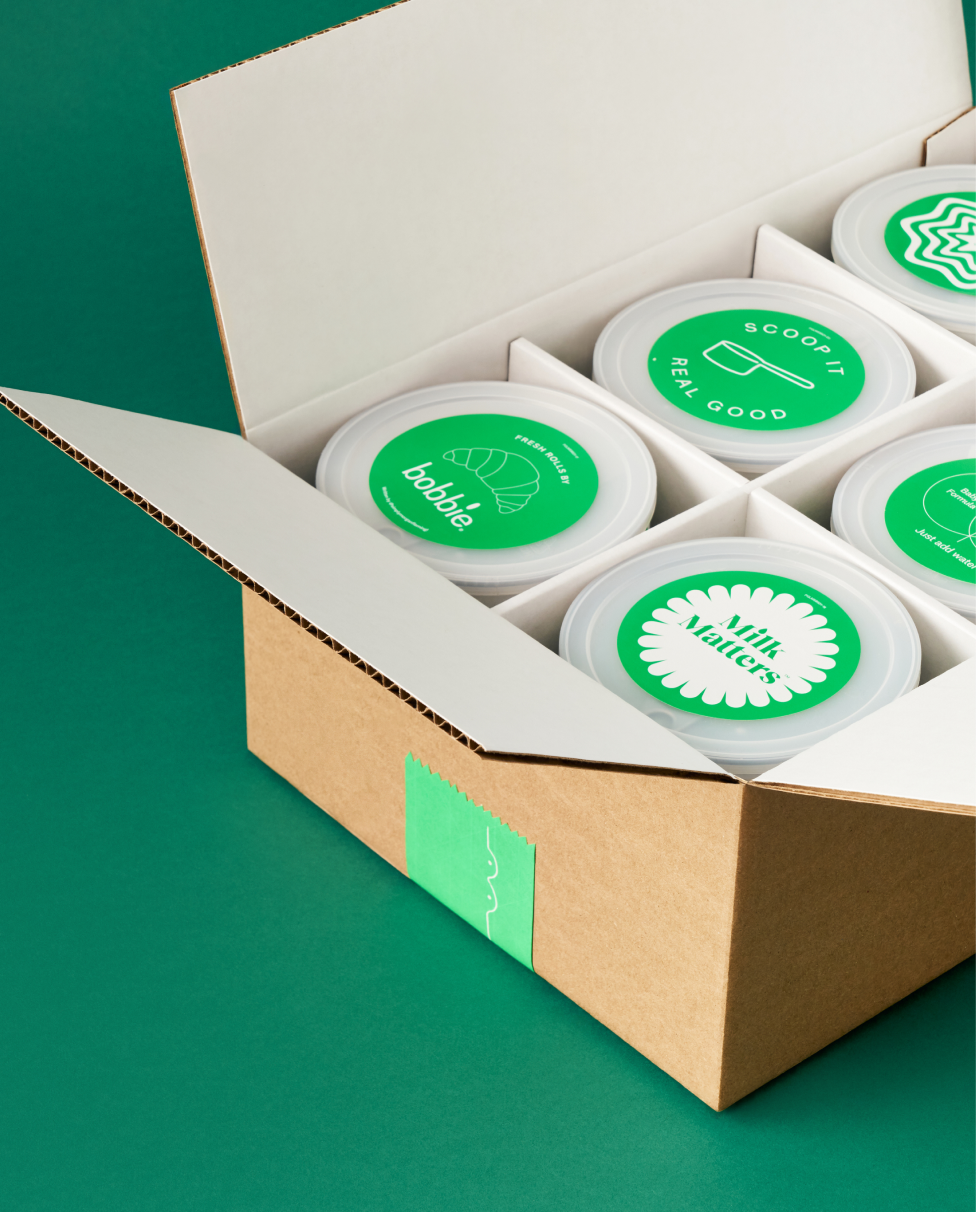
Shop Bobbie Organic Infant Formula
Bobbie Organic Infant Formula is a USDA Organic, EU-style infant formula that meets all FDA requirements. It is a complete nutrition milk-based powder modeled after breast milk and is easy on tummies. It is non-GMO and doesn't have corn syrup, palm oil, or maltodextrin. Shop Bobbie today!

How to Prepare Baby Formula: A Step-by-Step Guide
Whether you’re mixing your very first bottle or just need a quick refresher, this simple step-by-step guide will help you prepare baby formula safely and confidently — at home or on the go.
Step 1: Wash Your Hands Thoroughly
Start with clean hands — always. Wash with soap and warm water for at least 20 seconds. Make sure bottles, nipples and all feeding equipment you’re using are clean and fully sanitized to keep germs at bay. Also ensure your counter is clean and that you’re not prepping bottles next to meal messes!
Step 2: Source Clean Water
According to the American Academy of Pediatrics (AAP), tap water is okay for many families, but some prefer bottled, purified or distilled water. Not sure if tap water is safe in your area? A quick call to your local health department can help. Be sure to check with your pediatrician as well to ask whether you need to boil the water (and sterilize powdered formula) before serving.
Step 3: Measure and Add Water First
Always pour the water into the baby bottle before adding formula powder. Getting the water-to-formula ratio just right is essential for your baby’s health — too much or too little water can affect hydration and nutrition. The preparation guide on the back of your formula container provides instructions to help you measure based on the volume you’re trying to prepare.
Step 4: Add the Formula Powder
Use only the scoop that comes with your chosen formula. Level it off with a clean utensil or the can’s edge — no packing the scoop unless the label says to. This ensures the right amount of nutrients every time.
Step 5: Mix Well
Secure the formula bottle cap and shake or swirl until the powder is fully dissolved. No clumps? You’re good to go. Trouble mixing? Try using slightly warmer water next time, or allow the bottle to sit for a few minutes before serving.
Step 6: Check Temperature
Drip a few drops on your wrist — it should feel warm, never hot. Cold formula is safe too, but some infants might prefer it warm, especially in the early days or if they’re also nursing at the breast.
Step 7: Store or Discard Leftover Formula
Feeding right away? Great! If not, refrigerate the prepared formula within two hours and use it within 24. Once your baby starts drinking, toss any leftovers after one hour — better safe than sorry!
How To Prepare Formula Ahead of Time
If you’re still figuring out your baby’s feeding routine, you can prep bottles in advance to make things a little easier. Whether it’s for daycare drop-off or those middle-of-the-night wake-ups, having formula ready to go can be a lifesaver. Simply prepare bottles as usual, store them in the refrigerator and use them within 24 hours. For travel, keep prepped bottles chilled in an insulated cooler bag with ice packs to ensure they stay safe and fresh, never rising above 40 degrees fahrenheit. Planning ahead takes the pressure off in the moment — so you’re ready whenever those hunger cues hit, day or night.
Common Mistakes To Avoid When Preparing Baby Formula
Even with the best organic baby formula and the most earnest of intentions, it’s easy to make a few missteps — especially when you’re running on little sleep. Here are some common formula prep mistakes to keep on your radar as you get started on your feeding journey.
Using the Microwave
It might seem like the quickest option, but microwaving baby formula is a no-go. Microwaves heat unevenly, creating hot spots that can burn your baby’s mouth. Instead, warm bottles by placing them in a mug or bowl of warm water, or use a formula bottle warmer designed for safe, even heating.
Not Following Manufacturer Instructions
Every formula is a little different. Whether you’re using a whole milk formula, a gentle recipe or something in between, always follow the mixing instructions on the label. Using the wrong scoop-to-water ratio can lead to nutritional imbalances.
Using Expired Formula
The “use by” date on formula containers isn’t just a suggestion — it’s there to ensure your baby is getting the proper nutrients and that the product is safe. Always check the expiration date and inspect the container for damage. Once opened, powdered infant formula should be used within 30 days.
Inaccurate Measurements
It’s easy to mismeasure when you're distracted, but consistency matters. Too little water can lead to dehydration, while too much can dilute the nutrients your baby needs to thrive. Take your time, double-check measurements and follow the label closely to avoid accidental feeding issues.


Your go-to resource for all things new baby.
Sign up to get the scoop on feeding, sleep, poop, and so much more.
By singing up for email, you are to receive marketing emails from Bobbie and can manage your email preferences or unsubscribe at anytime
Formula Feeding FAQs
Here are answers to some of the most common questions about infant formula preparation:
How long can prepared formula stay in the fridge?
Once you’ve mixed a bottle, it can be stored safely in the fridge for up to 24 hours. Keep bottles toward the back of the fridge where it’s coldest, and don’t forget to label them with the date and time they were made (and/or when they expire)!
How long can prepared formula stay at room temperature?
Prepared formula can sit out at room temperature for up to two hours. But once your baby starts feeding, you’ll need to toss any leftovers after one hour from the start of the feeding — saliva can introduce bacteria that multiply quickly.
How should unused powdered formula be stored?
Keep unopened containers in a cool, dry spot away from heat and sunlight. Once opened, reseal tightly and use within 30 days. Don’t store powder in the fridge — just keep it dry and avoid extreme temperatures.
How should baby formula be prepared when traveling?
On the go? You can pre-mix bottles and store them in a cooler bag with ice packs, or bring along sterilized bottles and pre-measured powder to mix as needed. Don’t forget bottled water!
How can I make nighttime bottle feeding easier?
Prep bottles ahead of time and keep them in the fridge to use within 24 hours. When your little one wakes, just warm one up in a baby bottle warmer or bowl of warm water — or serve cold, if your baby doesn’t mind.
How should baby formula be prepared for daycare?
Most daycares allow labeled, pre-mixed bottles. Check their policy and pack bottles in an insulated bag. If your little one prefers warm milk, include a quick note with warming instructions.
Bobbie Powered Bottle Prep and Baby Love — You’ve Got This!
Preparing formula safely and accurately is a small act of love that makes a big difference — and you’re already on the right track. Trust your instincts, take it one bottle at a time and know that Bobbie is here to support you. Backed by science and approved by parents, Bobbie is proud to be the only mom-founded and women-led formula company in the U.S.
Looking for an infant formula that fits your baby's needs and your routine? Shop Bobbie Organic Infant Formula today.
The content on this site is for informational purposes only and not intended to be a substitute for professional medical advice, diagnosis or treatment. Discuss any health or feeding concerns with your infant’s pediatrician. Never disregard professional medical advice or delay it based on the content on this page.



